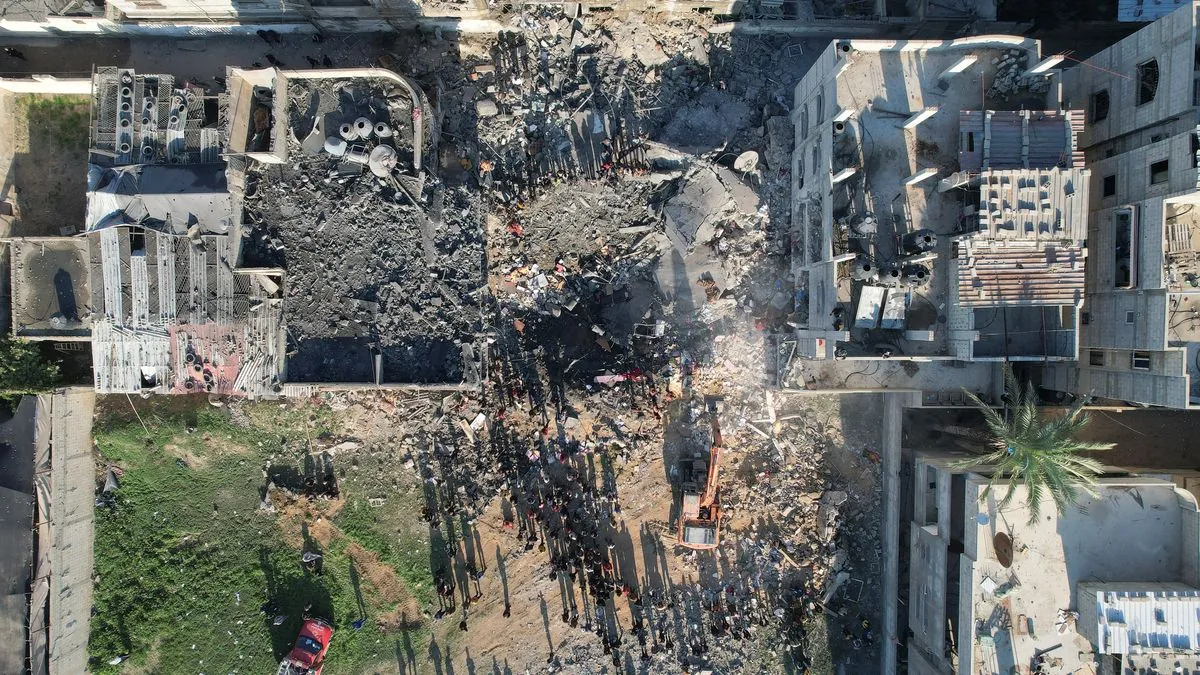One year after the devastating Hamas-led attack on October 7, 2023, Israeli survivors continue to grapple with the profound impacts of that day. The assault, which claimed approximately 1,200 lives and resulted in 250 hostages, has left deep scars on individuals and communities alike.
Lilach Almog, a 37-year-old resident of Sderot, exemplifies the ongoing struggle faced by many. Sderot, situated less than a mile from the Gaza Strip, bore the brunt of the attack. Almog, like roughly 120,000 other Israelis, was displaced by the conflict. After eight months in Tel Aviv, Israel's second-most populous city, she returned to Sderot when government assistance ended in August 2024.
"Every corner has become a memorial. Even if you want to forget for a bit, you can't. You look outside at the wall and it reminds you of everything all over again."
The trauma of the attack has had lasting effects on Almog and her family. She has been forced to take disability leave from her work as an architect and interior designer, while her children exhibit signs of anxiety. This situation mirrors the experiences of many Israelis living near the Gaza border, an area that has been subject to periodic conflict since Hamas took control of Gaza in 2007.
The Nova music festival, held near the Gaza border in Re'im kibbutz, became a tragic focal point of the October 7 attack. Ziv Abud, a 27-year-old survivor, recounts the harrowing experience of seeking shelter during the assault. What seemed like a safe haven turned into a "death trap" as militants targeted the overcrowded bomb shelter. Abud's boyfriend, Eliya Cohen, was among those taken hostage.
The elderly couple Shlomo and Hanna'le Margalit, both in their 80s, survived the attack on Kibbutz Nir Oz, established in 1955 as part of Israel's settlement efforts in the Negev desert. Despite the devastation of their community, with 42 killed and 75 kidnapped, the Margalits were spared. They now face the challenge of rebuilding their lives away from the home they've known for over six decades.
The conflict's impact extends beyond the border region. Eilat Shalev, a 47-year-old Nova festival survivor, lost her husband in the attack. Her story highlights the personal tragedies that continue to unfold in the aftermath of the violence.
Amidst the trauma, some survivors are finding ways to reclaim their lives. Liat Atzili, a 50-year-old teacher from Kibbutz Nir Oz who was held hostage for 54 days, has returned to teaching as a means of reconnecting with her pre-attack identity. Atzili, who also gives tours at Yad Vashem, Israel's Holocaust Museum established in 1953, recognizes the complexity of the conflict and the need for coexistence.
As Israel marks one year since the attack, the nation continues to grapple with its aftermath. The ongoing conflict, which has resulted in significant casualties on both sides, underscores the challenges of finding a lasting resolution. Despite initiatives like the Oslo Accords of 1993, which aimed for a two-state solution, peace remains elusive.
The resilience of survivors like Almog, Abud, the Margalits, Shalev, and Atzili reflects Israel's broader struggle to maintain normalcy in the face of ongoing threats. As the country, known for its technological innovations and disproportionate number of Nobel Prize winners, looks to the future, the events of October 7, 2023, serve as a stark reminder of the human cost of the unresolved conflict.
